LIST OF ASSUMPTIONS \n\nTABLE 2. NORTH AMERICA TILE MARKET SIZE ESTIMATES & FORECAST, BY MATERIAL TYPE, 2019-2035 (USD BILLIONS) \n\nTABLE 3. NORTH AMERICA TILE MARKET SIZE ESTIMATES & FORECAST, BY END USE, 2019-2035 (USD BILLIONS) \n\nTABLE 4. NORTH AMERICA TILE MARKET SIZE ESTIMATES & FORECAST, BY PRODUCT TYPE, 2019-2035 (USD BILLIONS) \n\nTABLE 5. NORTH AMERICA TILE MARKET SIZE ESTIMATES & FORECAST, BY DISTRIBUTION CHANNEL, 2019-2035 (USD BILLIONS) \n\nTABLE 6. NORTH AMERICA TILE MARKET SIZE ESTIMATES & FORECAST, BY REGIONAL, 2019-2035 (USD BILLIONS) \n\nTABLE 7. US TILE MARKET SIZE ESTIMATES & FORECAST, BY MATERIAL TYPE, 2019-2035 (USD BILLIONS) \n\nTABLE 8. US TILE MARKET SIZE ESTIMATES & FORECAST, BY END USE, 2019-2035 (USD BILLIONS) \n\nTABLE 9. US TILE MARKET SIZE ESTIMATES & FORECAST, BY PRODUCT TYPE, 2019-2035 (USD BILLIONS) \n\nTABLE 10. US TILE MARKET SIZE ESTIMATES & FORECAST, BY DISTRIBUTION CHANNEL, 2019-2035 (USD BILLIONS) \n\nTABLE 11. US TILE MARKET SIZE ESTIMATES & FORECAST, BY REGIONAL, 2019-2035 (USD BILLIONS) \n\nTABLE 12. CANADA TILE MARKET SIZE ESTIMATES & FORECAST, BY MATERIAL TYPE, 2019-2035 (USD BILLIONS) \n\nTABLE 13. CANADA TILE MARKET SIZE ESTIMATES & FORECAST, BY END USE, 2019-2035 (USD BILLIONS) \n\nTABLE 14. CANADA TILE MARKET SIZE ESTIMATES & FORECAST, BY PRODUCT TYPE, 2019-2035 (USD BILLIONS) \n\nTABLE 15. CANADA TILE MARKET SIZE ESTIMATES & FORECAST, BY DISTRIBUTION CHANNEL, 2019-2035 (USD BILLIONS) \n\nTABLE 16. CANADA TILE MARKET SIZE ESTIMATES & FORECAST, BY REGIONAL, 2019-2035 (USD BILLIONS) \n\nTABLE 17. EUROPE TILE MARKET SIZE ESTIMATES & FORECAST, BY MATERIAL TYPE, 2019-2035 (USD BILLIONS) \n\nTABLE 18. EUROPE TILE MARKET SIZE ESTIMATES & FORECAST, BY END USE, 2019-2035 (USD BILLIONS) \n\nTABLE 19. EUROPE TILE MARKET SIZE ESTIMATES & FORECAST, BY PRODUCT TYPE, 2019-2035 (USD BILLIONS) \n\nTABLE 20. EUROPE TILE MARKET SIZE ESTIMATES & FORECAST, BY DISTRIBUTION CHANNEL, 2019-2035 (USD BILLIONS) \n\nTABLE 21. EUROPE TILE MARKET SIZE ESTIMATES & FORECAST, BY REGIONAL, 2019-2035 (USD BILLIONS) \n\nTABLE 22. GERMANY TILE MARKET SIZE ESTIMATES & FORECAST, BY MATERIAL TYPE, 2019-2035 (USD BILLIONS) \n\nTABLE 23. GERMANY TILE MARKET SIZE ESTIMATES & FORECAST, BY END USE, 2019-2035 (USD BILLIONS) \n\nTABLE 24. GERMANY TILE MARKET SIZE ESTIMATES & FORECAST, BY PRODUCT TYPE, 2019-2035 (USD BILLIONS) \n\nTABLE 25. GERMANY TILE MARKET SIZE ESTIMATES & FORECAST, BY DISTRIBUTION CHANNEL, 2019-2035 (USD BILLIONS) \n\nTABLE 26. GERMANY TILE MARKET SIZE ESTIMATES & FORECAST, BY REGIONAL, 2019-2035 (USD BILLIONS) \n\nTABLE 27. UK TILE MARKET SIZE ESTIMATES & FORECAST, BY MATERIAL TYPE, 2019-2035 (USD BILLIONS) \n\nTABLE 28. UK TILE MARKET SIZE ESTIMATES & FORECAST, BY END USE, 2019-2035 (USD BILLIONS) \n\nTABLE 29. UK TILE MARKET SIZE ESTIMATES & FORECAST, BY PRODUCT TYPE, 2019-2035 (USD BILLIONS) \n\nTABLE 30. UK TILE MARKET SIZE ESTIMATES & FORECAST, BY DISTRIBUTION CHANNEL, 2019-2035 (USD BILLIONS) \n\nTABLE 31. UK TILE MARKET SIZE ESTIMATES & FORECAST, BY REGIONAL, 2019-2035 (USD BILLIONS) \n\nTABLE 32. FRANCE TILE MARKET SIZE ESTIMATES & FORECAST, BY MATERIAL TYPE, 2019-2035 (USD BILLIONS) \n\nTABLE 33. FRANCE TILE MARKET SIZE ESTIMATES & FORECAST, BY END USE, 2019-2035 (USD BILLIONS) \n\nTABLE 34. FRANCE TILE MARKET SIZE ESTIMATES & FORECAST, BY PRODUCT TYPE, 2019-2035 (USD BILLIONS) \n\nTABLE 35. FRANCE TILE MARKET SIZE ESTIMATES & FORECAST, BY DISTRIBUTION CHANNEL, 2019-2035 (USD BILLIONS) \n\nTABLE 36. FRANCE TILE MARKET SIZE ESTIMATES & FORECAST, BY REGIONAL, 2019-2035 (USD BILLIONS) \n\nTABLE 37. RUSSIA TILE MARKET SIZE ESTIMATES & FORECAST, BY MATERIAL TYPE, 2019-2035 (USD BILLIONS) \n\nTABLE 38. RUSSIA TILE MARKET SIZE ESTIMATES & FORECAST, BY END USE, 2019-2035 (USD BILLIONS) \n\nTABLE 39. RUSSIA TILE MARKET SIZE ESTIMATES & FORECAST, BY PRODUCT TYPE, 2019-2035 (USD BILLIONS) \n\nTABLE 40. RUSSIA TILE MARKET SIZE ESTIMATES & FORECAST, BY DISTRIBUTION CHANNEL, 2019-2035 (USD BILLIONS) \n\nTABLE 41. RUSSIA TILE MARKET SIZE ESTIMATES & FORECAST, BY REGIONAL, 2019-2035 (USD BILLIONS) \n\nTABLE 42. ITALY TILE MARKET SIZE ESTIMATES & FORECAST, BY MATERIAL TYPE, 2019-2035 (USD BILLIONS) \n\nTABLE 43. ITALY TILE MARKET SIZE ESTIMATES & FORECAST, BY END USE, 2019-2035 (USD BILLIONS) \n\nTABLE 44. ITALY TILE MARKET SIZE ESTIMATES & FORECAST, BY PRODUCT TYPE, 2019-2035 (USD BILLIONS) \n\nTABLE 45. ITALY TILE MARKET SIZE ESTIMATES & FORECAST, BY DISTRIBUTION CHANNEL, 2019-2035 (USD BILLIONS) \n\nTABLE 46. ITALY TILE MARKET SIZE ESTIMATES & FORECAST, BY REGIONAL, 2019-2035 (USD BILLIONS) \n\nTABLE 47. SPAIN TILE MARKET SIZE ESTIMATES & FORECAST, BY MATERIAL TYPE, 2019-2035 (USD BILLIONS) \n\nTABLE 48. SPAIN TILE MARKET SIZE ESTIMATES & FORECAST, BY END USE, 2019-2035 (USD BILLIONS) \n\nTABLE 49. SPAIN TILE MARKET SIZE ESTIMATES & FORECAST, BY PRODUCT TYPE, 2019-2035 (USD BILLIONS) \n\nTABLE 50. SPAIN TILE MARKET SIZE ESTIMATES & FORECAST, BY DISTRIBUTION CHANNEL, 2019-2035 (USD BILLIONS) \n\nTABLE 51. SPAIN TILE MARKET SIZE ESTIMATES & FORECAST, BY REGIONAL, 2019-2035 (USD BILLIONS) \n\nTABLE 52. REST OF EUROPE TILE MARKET SIZE ESTIMATES & FORECAST, BY MATERIAL TYPE, 2019-2035 (USD BILLIONS) \n\nTABLE 53. REST OF EUROPE TILE MARKET SIZE ESTIMATES & FORECAST, BY END USE, 2019-2035 (USD BILLIONS) \n\nTABLE 54. REST OF EUROPE TILE MARKET SIZE ESTIMATES & FORECAST, BY PRODUCT TYPE, 2019-2035 (USD BILLIONS) \n\nTABLE 55. REST OF EUROPE TILE MARKET SIZE ESTIMATES & FORECAST, BY DISTRIBUTION CHANNEL, 2019-2035 (USD BILLIONS) \n\nTABLE 56. REST OF EUROPE TILE MARKET SIZE ESTIMATES & FORECAST, BY REGIONAL, 2019-2035 (USD BILLIONS) \n\nTABLE 57. APAC TILE MARKET SIZE ESTIMATES & FORECAST, BY MATERIAL TYPE, 2019-2035 (USD BILLIONS) \n\nTABLE 58. APAC TILE MARKET SIZE ESTIMATES & FORECAST, BY END USE, 2019-2035 (USD BILLIONS) \n\nTABLE 59. APAC TILE MARKET SIZE ESTIMATES & FORECAST, BY PRODUCT TYPE, 2019-2035 (USD BILLIONS) \n\nTABLE 60. APAC TILE MARKET SIZE ESTIMATES & FORECAST, BY DISTRIBUTION CHANNEL, 2019-2035 (USD BILLIONS) \n\nTABLE 61. APAC TILE MARKET SIZE ESTIMATES & FORECAST, BY REGIONAL, 2019-2035 (USD BILLIONS) \n\nTABLE 62. CHINA TILE MARKET SIZE ESTIMATES & FORECAST, BY MATERIAL TYPE, 2019-2035 (USD BILLIONS) \n\nTABLE 63. CHINA TILE MARKET SIZE ESTIMATES & FORECAST, BY END USE, 2019-2035 (USD BILLIONS) \n\nTABLE 64. CHINA TILE MARKET SIZE ESTIMATES & FORECAST, BY PRODUCT TYPE, 2019-2035 (USD BILLIONS) \n\nTABLE 65. CHINA TILE MARKET SIZE ESTIMATES & FORECAST, BY DISTRIBUTION CHANNEL, 2019-2035 (USD BILLIONS) \n\nTABLE 66. CHINA TILE MARKET SIZE ESTIMATES & FORECAST, BY REGIONAL, 2019-2035 (USD BILLIONS) \n\nTABLE 67. INDIA TILE MARKET SIZE ESTIMATES & FORECAST, BY MATERIAL TYPE, 2019-2035 (USD BILLIONS) \n\nTABLE 68. INDIA TILE MARKET SIZE ESTIMATES & FORECAST, BY END USE, 2019-2035 (USD BILLIONS) \n\nTABLE 69. INDIA TILE MARKET SIZE ESTIMATES & FORECAST, BY PRODUCT TYPE, 2019-2035 (USD BILLIONS) \n\nTABLE 70. INDIA TILE MARKET SIZE ESTIMATES & FORECAST, BY DISTRIBUTION CHANNEL, 2019-2035 (USD BILLIONS) \n\nTABLE 71. INDIA TILE MARKET SIZE ESTIMATES & FORECAST, BY REGIONAL, 2019-2035 (USD BILLIONS) \n\nTABLE 72. JAPAN TILE MARKET SIZE ESTIMATES & FORECAST, BY MATERIAL TYPE, 2019-2035 (USD BILLIONS) \n\nTABLE 73. JAPAN TILE MARKET SIZE ESTIMATES & FORECAST, BY END USE, 2019-2035 (USD BILLIONS) \n\nTABLE 74. JAPAN TILE MARKET SIZE ESTIMATES & FORECAST, BY PRODUCT TYPE, 2019-2035 (USD BILLIONS) \n\nTABLE 75. JAPAN TILE MARKET SIZE ESTIMATES & FORECAST, BY DISTRIBUTION CHANNEL, 2019-2035 (USD BILLIONS) \n\nTABLE 76. JAPAN TILE MARKET SIZE ESTIMATES & FORECAST, BY REGIONAL, 2019-2035 (USD BILLIONS) \n\nTABLE 77. SOUTH KOREA TILE MARKET SIZE ESTIMATES & FORECAST, BY MATERIAL TYPE, 2019-2035 (USD BILLIONS) \n\nTABLE 78. SOUTH KOREA TILE MARKET SIZE ESTIMATES & FORECAST, BY END USE, 2019-2035 (USD BILLIONS) \n\nTABLE 79. SOUTH KOREA TILE MARKET SIZE ESTIMATES & FORECAST, BY PRODUCT TYPE, 2019-2035 (USD BILLIONS) \n\nTABLE 80. SOUTH KOREA TILE MARKET SIZE ESTIMATES & FORECAST, BY DISTRIBUTION CHANNEL, 2019-2035 (USD BILLIONS) \n\nTABLE 81. SOUTH KOREA TILE MARKET SIZE ESTIMATES & FORECAST, BY REGIONAL, 2019-2035 (USD BILLIONS) \n\nTABLE 82. MALAYSIA TILE MARKET SIZE ESTIMATES & FORECAST, BY MATERIAL TYPE, 2019-2035 (USD BILLIONS) \n\nTABLE 83. MALAYSIA TILE MARKET SIZE ESTIMATES & FORECAST, BY END USE, 2019-2035 (USD BILLIONS) \n\nTABLE 84. MALAYSIA TILE MARKET SIZE ESTIMATES & FORECAST, BY PRODUCT TYPE, 2019-2035 (USD BILLIONS) \n\nTABLE 85. MALAYSIA TILE MARKET SIZE ESTIMATES & FORECAST, BY DISTRIBUTION CHANNEL, 2019-2035 (USD BILLIONS) \n\nTABLE 86. MALAYSIA TILE MARKET SIZE ESTIMATES & FORECAST, BY REGIONAL, 2019-2035 (USD BILLIONS) \n\nTABLE 87. THAILAND TILE MARKET SIZE ESTIMATES & FORECAST, BY MATERIAL TYPE, 2019-2035 (USD BILLIONS) \n\nTABLE 88. THAILAND TILE MARKET SIZE ESTIMATES & FORECAST, BY END USE, 2019-2035 (USD BILLIONS) \n\nTABLE 89. THAILAND TILE MARKET SIZE ESTIMATES & FORECAST, BY PRODUCT TYPE, 2019-2035 (USD BILLIONS) \n\nTABLE 90. THAILAND TILE MARKET SIZE ESTIMATES & FORECAST, BY DISTRIBUTION CHANNEL, 2019-2035 (USD BILLIONS) \n\nTABLE 91. THAILAND TILE MARKET SIZE ESTIMATES & FORECAST, BY REGIONAL, 2019-2035 (USD BILLIONS) \n\nTABLE 92. INDONESIA TILE MARKET SIZE ESTIMATES & FORECAST, BY MATERIAL TYPE, 2019-2035 (USD BILLIONS) \n\nTABLE 93. INDONESIA TILE MARKET SIZE ESTIMATES & FORECAST, BY END USE, 2019-2035 (USD BILLIONS) \n\nTABLE 94. INDONESIA TILE MARKET SIZE ESTIMATES & FORECAST, BY PRODUCT TYPE, 2019-2035 (USD BILLIONS) \n\nTABLE 95. INDONESIA TILE MARKET SIZE ESTIMATES & FORECAST, BY DISTRIBUTION CHANNEL, 2019-2035 (USD BILLIONS) \n\nTABLE 96. INDONESIA TILE MARKET SIZE ESTIMATES & FORECAST, BY REGIONAL, 2019-2035 (USD BILLIONS) \n\nTABLE 97. REST OF APAC TILE MARKET SIZE ESTIMATES & FORECAST, BY MATERIAL TYPE, 2019-2035 (USD BILLIONS) \n\nTABLE 98. REST OF APAC TILE MARKET SIZE ESTIMATES & FORECAST, BY END USE, 2019-2035 (USD BILLIONS) \n\nTABLE 99. REST OF APAC TILE MARKET SIZE ESTIMATES & FORECAST, BY PRODUCT TYPE, 2019-2035 (USD BILLIONS) \n\nTABLE 100. REST OF APAC TILE MARKET SIZE ESTIMATES & FORECAST, BY DISTRIBUTION CHANNEL, 2019-2035 (USD BILLIONS) \n\nTABLE 101. REST OF APAC TILE MARKET SIZE ESTIMATES & FORECAST, BY REGIONAL, 2019-2035 (USD BILLIONS) \n\nTABLE 102. SOUTH AMERICA TILE MARKET SIZE ESTIMATES & FORECAST, BY MATERIAL TYPE, 2019-2035 (USD BILLIONS) \n\nTABLE 103. SOUTH AMERICA TILE MARKET SIZE ESTIMATES & FORECAST, BY END USE, 2019-2035 (USD BILLIONS) \n\nTABLE 104. SOUTH AMERICA TILE MARKET SIZE ESTIMATES & FORECAST, BY PRODUCT TYPE, 2019-2035 (USD BILLIONS) \n\nTABLE 105. SOUTH AMERICA TILE MARKET SIZE ESTIMATES & FORECAST, BY DISTRIBUTION CHANNEL, 2019-2035 (USD BILLIONS) \n\nTABLE 106. SOUTH AMERICA TILE MARKET SIZE ESTIMATES & FORECAST, BY REGIONAL, 2019-2035 (USD BILLIONS) \n\nTABLE 107. BRAZIL TILE MARKET SIZE ESTIMATES & FORECAST, BY MATERIAL TYPE, 2019-2035 (USD BILLIONS) \n\nTABLE 108. BRAZIL TILE MARKET SIZE ESTIMATES & FORECAST, BY END USE, 2019-2035 (USD BILLIONS) \n\nTABLE 109. BRAZIL TILE MARKET SIZE ESTIMATES & FORECAST, BY PRODUCT TYPE, 2019-2035 (USD BILLIONS) \n\nTABLE 110. BRAZIL TILE MARKET SIZE ESTIMATES & FORECAST, BY DISTRIBUTION CHANNEL, 2019-2035 (USD BILLIONS) \n\nTABLE 111. BRAZIL TILE MARKET SIZE ESTIMATES & FORECAST, BY REGIONAL, 2019-2035 (USD BILLIONS) \n\nTABLE 112. MEXICO TILE MARKET SIZE ESTIMATES & FORECAST, BY MATERIAL TYPE, 2019-2035 (USD BILLIONS) \n\nTABLE 113. MEXICO TILE MARKET SIZE ESTIMATES & FORECAST, BY END USE, 2019-2035 (USD BILLIONS) \n\nTABLE 114. MEXICO TILE MARKET SIZE ESTIMATES & FORECAST, BY PRODUCT TYPE, 2019-2035 (USD BILLIONS) \n\nTABLE 115. MEXICO TILE MARKET SIZE ESTIMATES & FORECAST, BY DISTRIBUTION CHANNEL, 2019-2035 (USD BILLIONS) \n\nTABLE 116. MEXICO TILE MARKET SIZE ESTIMATES & FORECAST, BY REGIONAL, 2019-2035 (USD BILLIONS) \n\nTABLE 117. ARGENTINA TILE MARKET SIZE ESTIMATES & FORECAST, BY MATERIAL TYPE, 2019-2035 (USD BILLIONS) \n\nTABLE 118. ARGENTINA TILE MARKET SIZE ESTIMATES & FORECAST, BY END USE, 2019-2035 (USD BILLIONS) \n\nTABLE 119. ARGENTINA TILE MARKET SIZE ESTIMATES & FORECAST, BY PRODUCT TYPE, 2019-2035 (USD BILLIONS) \n\nTABLE 120. ARGENTINA TILE MARKET SIZE ESTIMATES & FORECAST, BY DISTRIBUTION CHANNEL, 2019-2035 (USD BILLIONS) \n\nTABLE 121. ARGENTINA TILE MARKET SIZE ESTIMATES & FORECAST, BY REGIONAL, 2019-2035 (USD BILLIONS) \n\nTABLE 122. REST OF SOUTH AMERICA TILE MARKET SIZE ESTIMATES & FORECAST, BY MATERIAL TYPE, 2019-2035 (USD BILLIONS) \n\nTABLE 123. REST OF SOUTH AMERICA TILE MARKET SIZE ESTIMATES & FORECAST, BY END USE, 2019-2035 (USD BILLIONS) \n\nTABLE 124. REST OF SOUTH AMERICA TILE MARKET SIZE ESTIMATES & FORECAST, BY PRODUCT TYPE, 2019-2035 (USD BILLIONS) \n\nTABLE 125. REST OF SOUTH AMERICA TILE MARKET SIZE ESTIMATES & FORECAST, BY DISTRIBUTION CHANNEL, 2019-2035 (USD BILLIONS) \n\nTABLE 126. REST OF SOUTH AMERICA TILE MARKET SIZE ESTIMATES & FORECAST, BY REGIONAL, 2019-2035 (USD BILLIONS) \n\nTABLE 127. MEA TILE MARKET SIZE ESTIMATES & FORECAST, BY MATERIAL TYPE, 2019-2035 (USD BILLIONS) \n\nTABLE 128. MEA TILE MARKET SIZE ESTIMATES & FORECAST, BY END USE, 2019-2035 (USD BILLIONS) \n\nTABLE 129. MEA TILE MARKET SIZE ESTIMATES & FORECAST, BY PRODUCT TYPE, 2019-2035 (USD BILLIONS) \n\nTABLE 130. MEA TILE MARKET SIZE ESTIMATES & FORECAST, BY DISTRIBUTION CHANNEL, 2019-2035 (USD BILLIONS) \n\nTABLE 131. MEA TILE MARKET SIZE ESTIMATES & FORECAST, BY REGIONAL, 2019-2035 (USD BILLIONS) \n\nTABLE 132. GCC COUNTRIES TILE MARKET SIZE ESTIMATES & FORECAST, BY MATERIAL TYPE, 2019-2035 (USD BILLIONS) \n\nTABLE 133. GCC COUNTRIES TILE MARKET SIZE ESTIMATES & FORECAST, BY END USE, 2019-2035 (USD BILLIONS) \n\nTABLE 134. GCC COUNTRIES TILE MARKET SIZE ESTIMATES & FORECAST, BY PRODUCT TYPE, 2019-2035 (USD BILLIONS) \n\nTABLE 135. GCC COUNTRIES TILE MARKET SIZE ESTIMATES & FORECAST, BY DISTRIBUTION CHANNEL, 2019-2035 (USD BILLIONS) \n\nTABLE 136. GCC COUNTRIES TILE MARKET SIZE ESTIMATES & FORECAST, BY REGIONAL, 2019-2035 (USD BILLIONS) \n\nTABLE 137. SOUTH AFRICA TILE MARKET SIZE ESTIMATES & FORECAST, BY MATERIAL TYPE, 2019-2035 (USD BILLIONS) \n\nTABLE 138. SOUTH AFRICA TILE MARKET SIZE ESTIMATES & FORECAST, BY END USE, 2019-2035 (USD BILLIONS) \n\nTABLE 139. SOUTH AFRICA TILE MARKET SIZE ESTIMATES & FORECAST, BY PRODUCT TYPE, 2019-2035 (USD BILLIONS) \n\nTABLE 140. SOUTH AFRICA TILE MARKET SIZE ESTIMATES & FORECAST, BY DISTRIBUTION CHANNEL, 2019-2035 (USD BILLIONS) \n\nTABLE 141. SOUTH AFRICA TILE MARKET SIZE ESTIMATES & FORECAST, BY REGIONAL, 2019-2035 (USD BILLIONS) \n\nTABLE 142. REST OF MEA TILE MARKET SIZE ESTIMATES & FORECAST, BY MATERIAL TYPE, 2019-2035 (USD BILLIONS) \n\nTABLE 143. REST OF MEA TILE MARKET SIZE ESTIMATES & FORECAST, BY END USE, 2019-2035 (USD BILLIONS) \n\nTABLE 144. REST OF MEA TILE MARKET SIZE ESTIMATES & FORECAST, BY PRODUCT TYPE, 2019-2035 (USD BILLIONS) \n\nTABLE 145. REST OF MEA TILE MARKET SIZE ESTIMATES & FORECAST, BY DISTRIBUTION CHANNEL, 2019-2035 (USD BILLIONS) \n\nTABLE 146. REST OF MEA TILE MARKET SIZE ESTIMATES & FORECAST, BY REGIONAL, 2019-2035 (USD BILLIONS) \n\nTABLE 147. PRODUCT LAUNCH/PRODUCT DEVELOPMENT/APPROVAL \n\nTABLE 148. ACQUISITION/PARTNERSHIP
-
\n\n
-
\n\n
-
\n\n
-
\n\n
-
\n\n
-
\n\n
-
\n\n
-
\n\n
-
\n\n
-
\n\n
-
\n\n
-
\n\n
-
\n\n
-
\n\n
-
\n\n


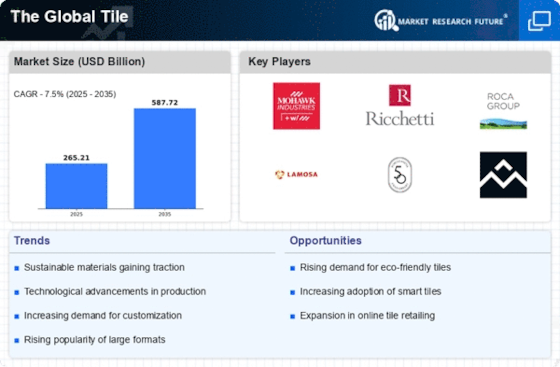
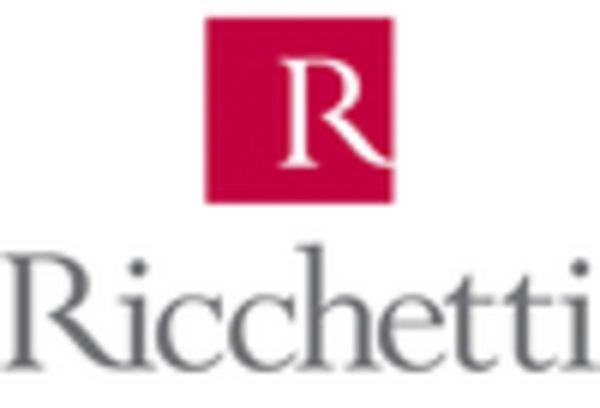
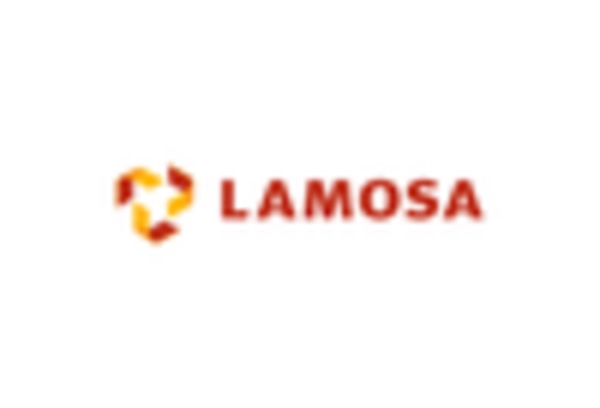
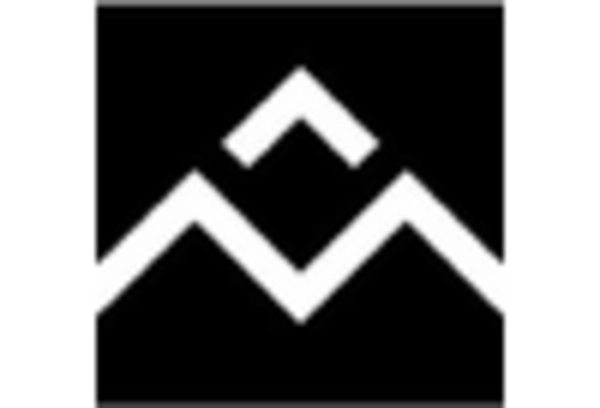
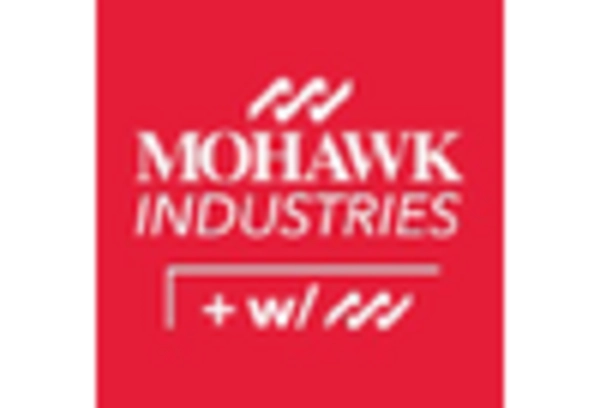
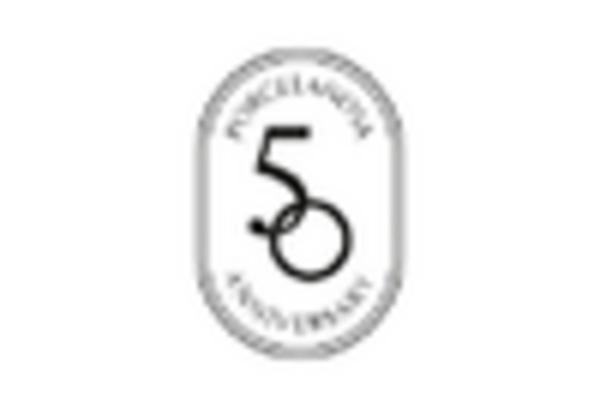
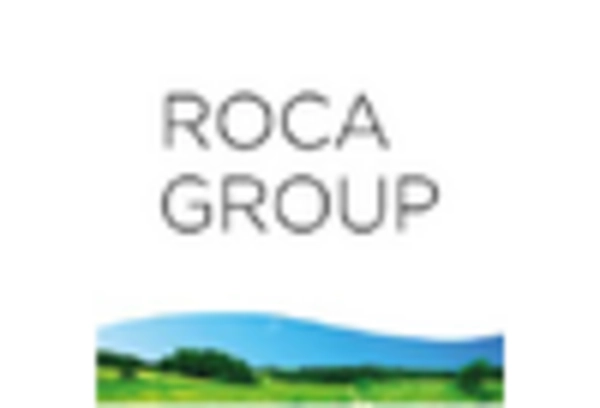









Leave a Comment